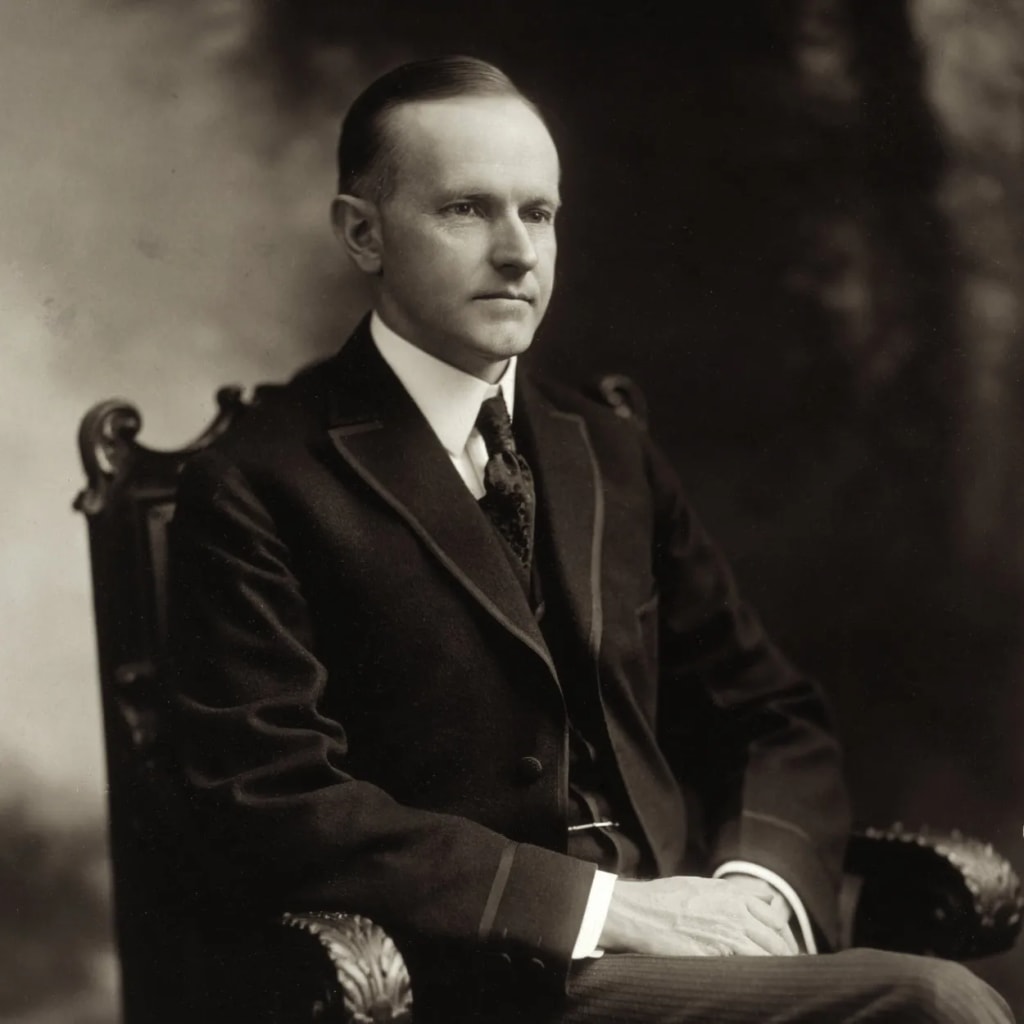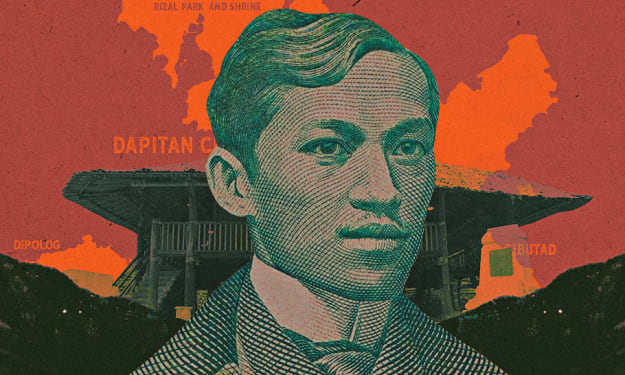Calvin Coolidge
The Silent Cal of American Politics

Calvin Coolidge, the 30th President of the United States, served from 1923 to 1929. Known for his quiet demeanor and a belief in limited government, Coolidge's presidency coincided with the Roaring Twenties, a period of economic prosperity and significant social change in the United States. His approach to governance, characterized by restraint and a conservative fiscal policy, left a lasting impact on the country and provides a stark contrast to the more activist presidencies that followed.
Early Life and Political Ascent
Born on July 4, 1872, in Plymouth Notch, Vermont, John Calvin Coolidge Jr. grew up in a rural environment that instilled in him the values of hard work and frugality. He graduated from Amherst College in 1895 and went on to study law. Coolidge’s political career began at the local level, serving as a city councilman in Northampton, Massachusetts. He gradually climbed the political ladder, holding various positions including mayor, state legislator, and governor of Massachusetts. His handling of the Boston Police Strike of 1919, where he stood firm against the striking officers, gained him national attention and showcased his belief in law and order.
Presidency and Policies
Coolidge became Vice President under Warren G. Harding in 1920. Following Harding’s sudden death in 1923, Coolidge assumed the presidency. His administration focused on maintaining economic stability and promoting business interests. Coolidge's economic philosophy was rooted in a belief that government should interfere as little as possible in the private sector, encapsulated in his famous saying, "The business of America is business."
Coolidge's presidency saw significant tax cuts, which he believed would stimulate investment and economic growth. The Revenue Acts of 1924 and 1926 reduced federal income taxes and abolished the estate tax. His administration also worked to reduce federal spending, resulting in budget surpluses. Coolidge's fiscal conservatism contributed to the economic boom of the 1920s, although it also laid the groundwork for the economic disparities that would become more apparent in the Great Depression.
Social and Cultural Impact
Despite his economic successes, Coolidge's tenure was marked by a reluctance to engage in social reform. He opposed government intervention in issues such as labor rights and civil rights for African Americans. Coolidge’s administration did little to address the agricultural depression affecting rural America, and his veto of the McNary-Haugen Bill, which aimed to support struggling farmers, highlighted his adherence to free-market principles.
Culturally, the 1920s was a decade of significant change, with the rise of jazz, the flapper movement, and the Harlem Renaissance. Coolidge, however, remained largely aloof from these developments, focusing instead on maintaining traditional values. His stance on immigration reflected the era’s nativist sentiments, as he supported the Immigration Act of 1924, which severely restricted immigration from southern and eastern Europe.
Legacy and Evaluation
Calvin Coolidge's legacy is a subject of debate among historians. Supporters laud his commitment to limited government, fiscal responsibility, and business-friendly policies. They argue that his stewardship contributed to the economic prosperity of the 1920s and that his hands-off approach allowed for a flourishing private sector.
Critics, however, contend that Coolidge's laissez-faire policies and neglect of emerging social issues contributed to the economic imbalances that led to the Great Depression. His failure to address the needs of farmers, laborers, and marginalized groups left significant portions of the population vulnerable.
Coolidge’s personal style also influenced his legacy. Known as "Silent Cal" for his reticence, he was a man of few words, which endeared him to some but made him appear indifferent to others. His succinctness and preference for efficiency over rhetoric stand in stark contrast to the more dynamic political leaders who followed.
In conclusion, Calvin Coolidge remains a complex figure in American history. His presidency, marked by economic prosperity and conservative governance, reflects the values and challenges of the 1920s. While his approach to government left a significant imprint on the nation, it also sparked debates about the role of government in managing economic and social issues, debates that continue to resonate in contemporary political discourse.
About the Creator
Enjoyed the story? Support the Creator.
Subscribe for free to receive all their stories in your feed. You could also pledge your support or give them a one-off tip, letting them know you appreciate their work.





Comments
Nicole Jameson is not accepting comments at the moment
Want to show your support? Send them a one-off tip.